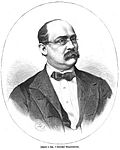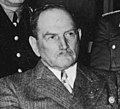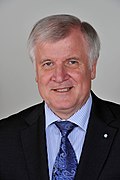| Minister-President of Bavaria | |
|---|---|
| Ministerpräsident des Freistaates Bayern | |
 Coat of arms of Bavaria | |
| Residence | Prinz-Carl-Palais, Munich (official residence) Bavarian State Chancellery, Munich (executive office) |
| Appointer | Landtag of Bavaria |
| Term length | Pending resignation or the election of a successor |
| Inaugural holder | Kurt Eisner |
| Formation | 8 November 1918 |
| Salary | regulated by legislation |
| Website | Official website |
 |
|---|
Below is a list of the men who have served in the capacity of minister-president or equivalent office in the German state of Bavaria from the 17th century to the present.














































